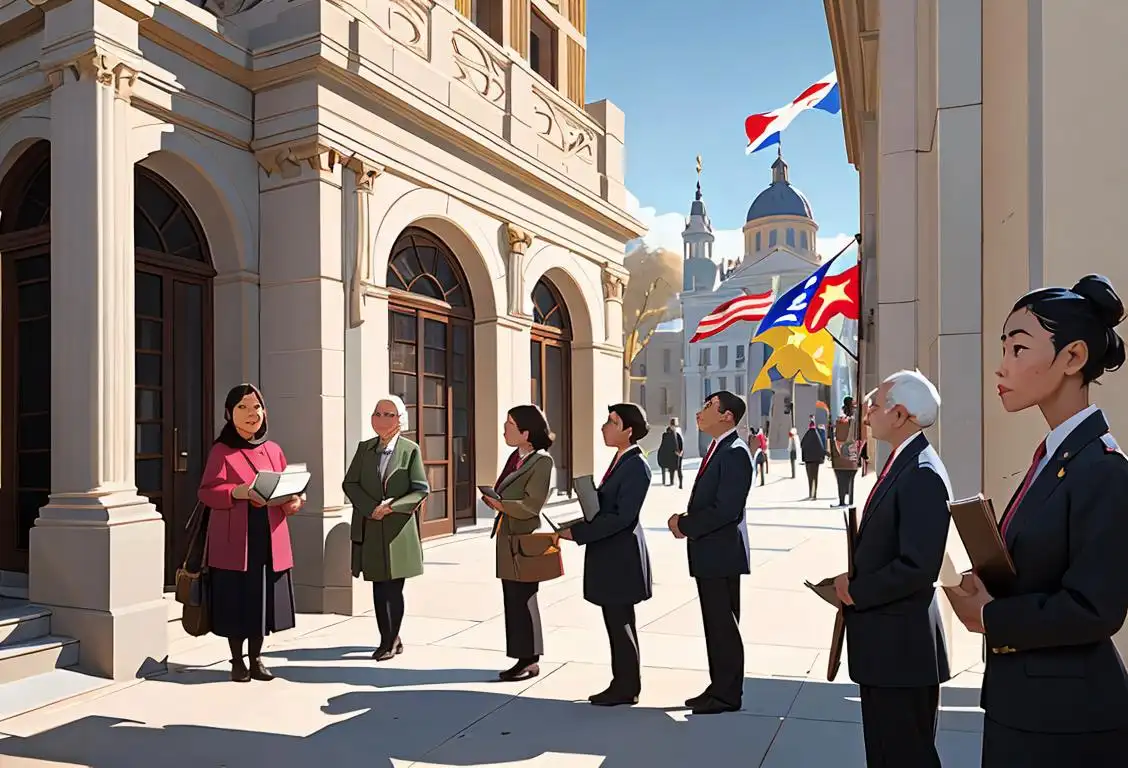National Library Legislative Day

Welcome to the delightful world of National Library Legislative Day! It's a day when book lovers and information enthusiasts come together to celebrate the humble library and advocate for its importance in our society. Whether you're a fan of the musty scent of old books or prefer the convenience of digital libraries, this day is all about showing some love to these temples of knowledge. So, let's dive into the fascinating history and significance of this special day!
When is Library Legislative Day?
It's national library legislative day on the 7th May.
The Origins of National Library Legislative Day
Believe it or not, National Library Legislative Day didn't start with a bunch of librarians storming Capitol Hill, armed with overdue book fines and encyclopedias as weapons. No, this day evolved through the combined efforts of library supporters and advocacy groups who recognized the need for a designated day to champion libraries.
Back in the early 1970s, a vibrant organization called the American Library Association (ALA) decided to focus their energy on legislative advocacy. They created National Library Legislative Day as a way to bring library supporters together and raise awareness about the importance of libraries in communities across the nation.
What Happens on National Library Legislative Day?
On this marvelous day, library lovers from all walks of life unite to make sure libraries get the attention they deserve. Advocacy groups organize events, rallies, and community gatherings to connect with lawmakers and demonstrate the impact libraries have on education, literacy, and access to information.
Library supporters engage in a variety of activities to make their voices heard. They write letters, send emails, and make phone calls to their elected officials, urging them to support library funding and policies that benefit libraries and their patrons.
Most importantly, National Library Legislative Day serves as a reminder to everyone that libraries are not just places to borrow books. They are community hubs where people gather, learn, explore, and find solace in the company of words and stories. From traditional brick-and-mortar libraries to the ever-expanding virtual libraries, these sanctuaries of knowledge continue to evolve and adapt to the changing needs of society.
Did You Know?
Did you know that the oldest known library in the world belongs to the ancient Iraqi city of Nineveh? Dating back to the seventh century BCE, this sprawling collection of clay tablets contained an astonishing array of topics, ranging from works of literature to scientific and economic texts. Imagine stumbling upon that treasure trove during a late-night library expedition!
History behind the term 'Library Legislative'
1800
The Birth of Libraries
In the year 1800, libraries began to emerge as vital institutions for preserving and disseminating knowledge. These early libraries consisted primarily of private collections owned by wealthy individuals or institutions and were not accessible to the general public. However, the need for public access to books and educational resources soon became evident.
1833
First Library Legislation
The year 1833 marked an important milestone in the history of libraries with the passage of the first library legislation. The state of Massachusetts, in the United States, became the first jurisdiction to enact a law supporting public libraries. This legislation paved the way for other states and countries to acknowledge the importance of libraries in fostering education and knowledge.
1850
Library Legislation Spreads
Library legislation gained momentum during the mid-19th century. In 1850, Great Britain passed the Public Libraries Act, which allowed the establishment of public libraries and authorized local government bodies to levy taxes to support them. This marked the beginning of a movement to make libraries accessible to all, regardless of their social or economic background.
1886
Library of Congress as a Model
In 1886, the United States took a significant step towards strengthening its library system. The Library of Congress, one of the world's largest and most prestigious libraries, was designated as a model for other public libraries. This recognition emphasized the importance of a centralized national library and set a standard for library legislation and governance.
20th Century
Expansion and Modernization
Library legislation continued to evolve and adapt to the changing needs of society throughout the 20th century. As technology advanced, libraries embraced new formats such as audiovisual materials, electronic resources, and online catalogs. Legislation played a crucial role in ensuring libraries had the necessary funding and infrastructure to meet these new demands.
Did you know?
Did you know that the oldest known library in the world belongs to the ancient Iraqi city of Nineveh?Tagged
awareness education advocacyFirst identified
18th March 2015Most mentioned on
7th May 2018Total mentions
1107Other days
Library Legislative Day
Grammar Day
Bird Day
History Day
Student Athlete Day
Punctuation Day
Teacher Appreciation Day
Education Day
Women In Engineering Day
Mathematics Day








